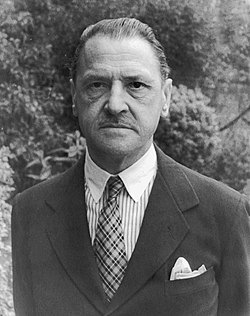W. Somerset Maugham Quote
Startled the world many years ago by stating in effect that if the amount of pleasure obtained from each be equal there is nothing to choose between poetry and push-pin. Since few people now know what push-pin is, I may explain that it is a child's game in which one player tries to push his pin across that of another player, and if he succeeds and then is able by pressing down on the two pins with the ball of his thumb to lift them off the table he wins possession of his opponent's pin. [...] The indignant retort to 's statement was that spiritual pleasures are obviously higher than physical pleasures. But who say so? Those who prefer spiritual pleasures. They are in a miserable minority, as they acknowledge when they declare that the gift of aesthetic appreciation is a very rare one. The vast majority of men are, as we know, both by necessity and choice preoccupied with material considerations. Their pleasures are material. They look askance at those who spent their lives in the pursuit of art. That is why they have attached a depreciatory sense to the word aesthete, which means merely one who has a special appreciation of beauty. How are we going to show that they are wrong? How are we going to show that there is something to choose between poetry and push-pin? I surmise that chose push-pin for its pleasant alliteration with poetry. Let us speak of lawn tennis. It is a popular game which many of us can play with pleasure. It needs skill and judgement, a good eye and a cool head. If I get the same amount of pleasure out of playing it as you get by looking at 's 'Entombment of Christ' in the Louvre, by listening to 's 'Eroica' or by reading 's 'Ash Wednesday', how are you going to prove that your pleasure is better and more refined than mine? Only, I should say, by manifesting that this gift you have of aesthetic appreciation has a moral effect on your character.
Startled the world many years ago by stating in effect that if the amount of pleasure obtained from each be equal there is nothing to choose between poetry and push-pin. Since few people now know what push-pin is, I may explain that it is a child's game in which one player tries to push his pin across that of another player, and if he succeeds and then is able by pressing down on the two pins with the ball of his thumb to lift them off the table he wins possession of his opponent's pin. [...] The indignant retort to 's statement was that spiritual pleasures are obviously higher than physical pleasures. But who say so? Those who prefer spiritual pleasures. They are in a miserable minority, as they acknowledge when they declare that the gift of aesthetic appreciation is a very rare one. The vast majority of men are, as we know, both by necessity and choice preoccupied with material considerations. Their pleasures are material. They look askance at those who spent their lives in the pursuit of art. That is why they have attached a depreciatory sense to the word aesthete, which means merely one who has a special appreciation of beauty. How are we going to show that they are wrong? How are we going to show that there is something to choose between poetry and push-pin? I surmise that chose push-pin for its pleasant alliteration with poetry. Let us speak of lawn tennis. It is a popular game which many of us can play with pleasure. It needs skill and judgement, a good eye and a cool head. If I get the same amount of pleasure out of playing it as you get by looking at 's 'Entombment of Christ' in the Louvre, by listening to 's 'Eroica' or by reading 's 'Ash Wednesday', how are you going to prove that your pleasure is better and more refined than mine? Only, I should say, by manifesting that this gift you have of aesthetic appreciation has a moral effect on your character.
Related Quotes
About W. Somerset Maugham
Maugham's novels after Liza of Lambeth include Of Human Bondage (1915), The Moon and Sixpence (1919), The Painted Veil (1925), Cakes and Ale (1930) and The Razor's Edge (1944). His short stories were published in collections such as The Casuarina Tree (1926) and The Mixture as Before (1940); many of them have been adapted for radio, cinema and television. His great popularity and prodigious sales provoked adverse reactions from highbrow critics, many of whom sought to belittle him as merely competent. More recent assessments generally rank Of Human Bondage – a book with a large autobiographical element – as a masterpiece, and his short stories are widely held in high critical regard. Maugham's plain prose style became known for its lucidity, but his reliance on clichés attracted adverse critical comment.
During the First World War Maugham worked for the British Secret Service, later drawing on his experiences for stories published in the 1920s. Although primarily homosexual, he attempted to conform to some extent with the norms of his day. After a three-year affair with Syrie Wellcome which produced their daughter, Liza, they married in 1917. The marriage lasted for twelve years, but before, during and after it, Maugham's principal partner was a younger man, Gerald Haxton. Together they made extended visits to Asia, the South Seas and other destinations; Maugham gathered material for his fiction wherever they went. They lived together in the French Riviera, where Maugham entertained lavishly. After Haxton's death in 1944, Alan Searle became Maugham's secretary-companion for the rest of the author's life. Maugham gave up writing novels shortly after the Second World War, and his last years were marred by senility. He died at the age of 91.
